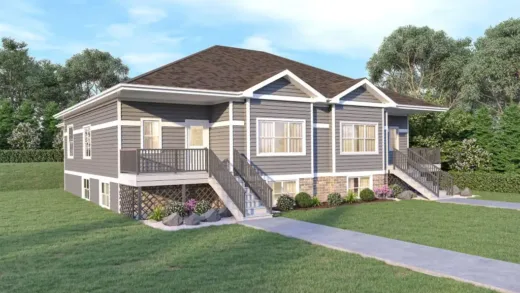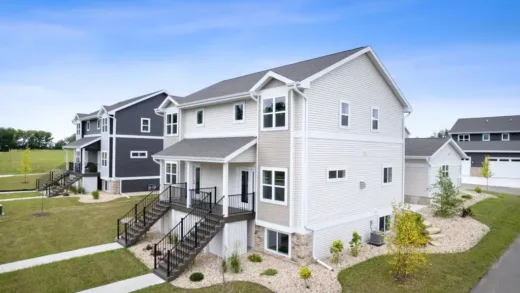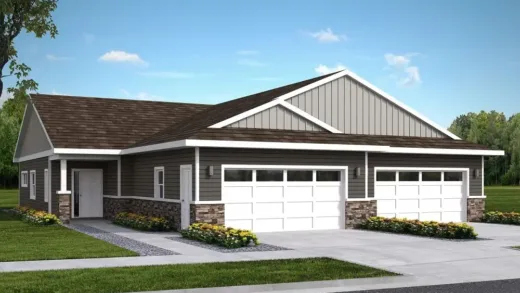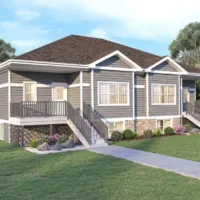Condominium living offers many perks: low maintenance, shared amenities, and a sense of community. However, it also comes with its unique challenges, particularly when it comes to navigating condo association meetings.
Whether you’re a seasoned homeowner or a new resident, understanding how to effectively participate in these meetings is crucial for ensuring your voice is heard and your concerns are addressed.
Contents
Understanding the Basics of Condo Association Meetings
1. What is a Condo Association Meeting?
A condominium association meeting is a formal gathering of the residents and board members of a condo community. These meetings serve several purposes, including discussing the community’s financial health, voting on important decisions, and addressing resident concerns. They are governed by the association’s bylaws, which dictate how the meetings are conducted, how decisions are made, and how disputes are resolved.
2. Types of Meetings
- Annual Meetings: Held once a year, these meetings typically involve electing new board members, reviewing the annual budget, and discussing long-term goals for the community.
- Regular Meetings: These occur monthly or quarterly and cover routine business such as financial reports, maintenance updates, and ongoing projects.
- Special Meetings: Called as needed to address urgent or specific issues that arise between regular meetings.
Preparing for the Meeting
1. Review the Agenda
Prior to the meeting, the board usually sends out an agenda outlining the topics to be discussed. Reviewing the agenda allows you to understand the key issues and prepare any questions or comments you might have. If the agenda is not provided, you can request it from the board or check if it is posted in a common area or online portal.
2. Understand the Bylaws
Condo association bylaws are the rules and regulations governing the operation of the condo community. They cover everything from meeting procedures to the responsibilities of board members and residents. Familiarizing yourself with the bylaws is crucial for effective participation. Pay special attention to sections related to meeting protocols, voting procedures, and dispute resolution.
3. Gather Information
If you’re planning to raise an issue or propose a change, gather relevant information and documentation beforehand. This could include financial statements, maintenance records, or legal documents. Having solid data will strengthen your position and help make your case more effectively.
Participating in the Meeting
1. Arrive Early
Arriving early allows you to familiarize yourself with the meeting room, get settled, and review any materials provided. It also shows respect for the process and ensures you’re ready to participate when the meeting begins.
2. Follow the Agenda
During the meeting, stick to the agenda to keep discussions focused and productive. If you have additional items to propose, you can request to add them to the agenda or raise them during the open forum portion of the meeting.
3. Respect Meeting Etiquette
- Be Polite: Respectful communication is key to effective participation. Address others courteously, even if you disagree with their views.
- Stay on Topic: Keep your comments relevant to the agenda item being discussed. If you have unrelated issues, bring them up during the open forum or ask for them to be added to the next meeting’s agenda.
- Listen Actively: Pay attention to others’ contributions. Understanding different perspectives can help in finding common ground and making informed decisions.
4. Speak Clearly and Concisely
When it’s your turn to speak, be clear and concise. State your points directly and avoid rambling. If you have supporting documents or evidence, present them in an organized manner.
5. Use Your Voting Rights
Decisions at condo association meetings are often made through voting. Understand the voting process and ensure you use your vote wisely. If you have questions about how to vote or what your options are, don’t hesitate to ask the board for clarification.
Having Your Voice Heard
1. Know Your Rights
As a condo owner, you have the right to participate in meetings, vote on key issues, and voice your opinions. If you feel your rights are being infringed upon, refer to the bylaws or seek advice from a legal professional.
2. Build Alliances
If you’re facing resistance to your ideas or concerns, building alliances with other residents can be beneficial. Find others who share your views or concerns and work together to present a united front. However, ensure that your alliances are based on mutual respect and shared goals rather than adversarial agendas.
3. Address Conflicts Constructively
Conflicts are inevitable in any community setting. When disagreements arise, address them constructively. Focus on finding solutions rather than placing blame. Use mediation or arbitration if necessary to resolve disputes in a fair and impartial manner.
4. Follow Up
After the meeting, follow up on any action items or decisions that were made. If you proposed a change or raised a concern, check in with the board or relevant committees to see what steps are being taken. This shows that you are committed to the community’s well-being and ensures that your issues are being addressed.
Effective Communication Strategies
1. Communicate Clearly and Respectfully
Clear and respectful communication is crucial for effective participation:
- Be Direct: State your points clearly and avoid ambiguity.
- Listen Actively: Pay attention to others’ perspectives and acknowledge their views.
- Stay Professional: Maintain a calm and professional demeanor, even in disagreements.
2. Engage Constructively
Engage in discussions constructively by:
- Focusing on Solutions: Aim to resolve issues rather than simply highlighting problems.
- Collaborating: Work with others to find common ground and achieve consensus.
3. Utilize Available Resources
Take advantage of resources such as community forums, newsletters, and board meetings to stay informed and involved.
How to Propose Changes or Improvements
1. Prepare a Proposal
When proposing changes or improvements:
- Identify the Issue: Clearly define the problem or area for improvement.
- Develop a Plan: Outline a detailed plan, including costs, benefits, and implementation steps.
- Gather Support: Seek support from other residents to strengthen your proposal.
2. Present Your Proposal
Present your proposal effectively by:
- Providing Evidence: Use data and examples to support your proposal.
- Addressing Concerns: Anticipate and address potential objections.
- Following Procedures: Adhere to the association’s procedures for submitting and presenting proposals.
Common Issues and How to Address Them
1. Maintenance Disputes
Maintenance issues, such as delayed repairs or inadequate service, are common in condo communities. To address these:
- Document Issues: Keep records of maintenance requests and responses.
- Raise Concerns Promptly: Bring up maintenance issues during meetings or contact the board directly.
- Propose Solutions: Suggest improvements or alternative service providers if current arrangements are unsatisfactory.
2. Noise Complaints
Noise disputes can affect community harmony. To handle these:
- Document Incidents: Keep a record of noise disturbances, including dates and times.
- Communicate Respectfully: Address concerns with the involved parties directly or through the board.
- Seek Mediation: If direct communication fails, mediation services can help resolve conflicts.
FAQs
1. What if I can’t attend a meeting?
You may be able to submit a written statement or proxy vote. Check the bylaws for specific procedures.
2. How can I suggest an agenda item?
Submit your request to the board in advance, following the procedures outlined in the bylaws.
3. What should I do if I disagree with a board decision?
Discuss your concerns with the board or other residents, and consider requesting a special meeting or mediation if necessary.
Conclusion
Navigating condo association meetings can be a complex process, but understanding how to prepare, participate, and have your voice heard is key to ensuring a positive and productive experience. By familiarizing yourself with the bylaws, preparing thoroughly, and engaging respectfully, you can contribute effectively to your condo community and help shape its future.
Remember, effective participation in condo association meetings not only benefits you but also contributes to the overall health and harmony of your community.
So next time you step into that meeting room, go in with confidence, clarity, and a commitment to making your voice heard.










